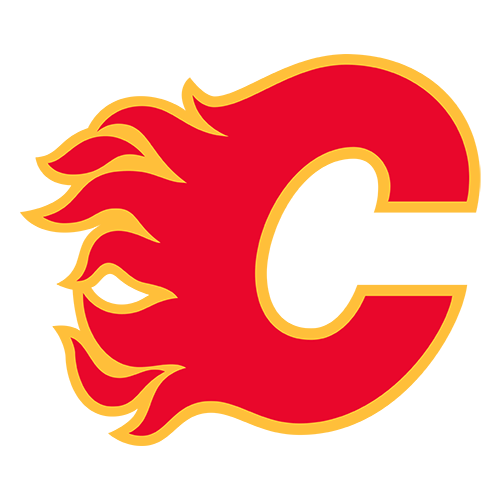NHL Ice Oracles
Saturday, February 28, 2026 - 13 Games Today


Pittsburgh Penguins vs New York Rangers
This is one of my favorite spots. This Pittsburgh Penguins-New York Rangers game is flying under the radar. At and , both teams are playing meaningful hockey.
On top of that, New York Rangers's power play is clicking at 25% with a 80% penalty kill. Special teams often decide these games.
truth is, New York Rangers is 7-6 ATS this season and 4-1 at home. That's not coincidence - sharp money follows trends like this. The value is clear.


Boston Bruins vs Philadelphia Flyers
The numbers are screaming at us. Hockey betting is all about edges, and Boston Bruins at Philadelphia Flyers presents a clear one.
Here's where it gets interesting: Philadelphia Flyers's power play is clicking at 21% with a 76% penalty kill. Special teams often decide these games.
here's the deal: ATS records matter. Philadelphia Flyers at 7-3 against the spread. Boston Bruins is 8-7. The value is clear. This is a gift from the market.


Edmonton Oilers vs San Jose Sharks
I keep coming back to this game. This Edmonton Oilers-San Jose Sharks game is flying under the radar. At 29-23-8 and 27-25-4, both teams are playing meaningful hockey.
Plus, Goaltending is everything in hockey. San Jose Sharks allows 2.52 goals per game while scoring 2.83. Check the starting netminders - that's where the edge is.
straight up, ATS records matter. San Jose Sharks at 5-7 against the spread. Edmonton Oilers is 4-4. The value is clear. The numbers support it.


New Jersey Devils vs St. Louis Blues
This line doesn't make sense. I love betting hockey when I see value, and New Jersey Devils at St. Louis Blues checks the boxes.
What stands out is St. Louis Blues's power play is clicking at 18% with a 86% penalty kill. Special teams often decide these games.
I mean, The betting trends are clear: St. Louis Blues covers consistently (6-5 ATS). When a team covers at this rate, there's a reason. The value is clear.


New York Islanders vs Columbus Blue Jackets
Let's talk about what matters here. The puck drops on an intriguing matchup - New York Islanders (33-21-5) visits Columbus Blue Jackets (29-21-7) at Nationwide Arena.
What really matters is Columbus Blue Jackets's power play is clicking at 18% with a 80% penalty kill. Special teams often decide these games.
truth is, The betting trends are clear: Columbus Blue Jackets covers consistently (8-5 ATS). When a team covers at this rate, there's a reason. I'm confident here.


Chicago Blackhawks vs Colorado Avalanche
Trust me on this one. Hockey betting is all about edges, and Chicago Blackhawks at Colorado Avalanche presents a clear one.
What really matters is Goaltending is everything in hockey. Colorado Avalanche allows 2.63 goals per game while scoring 2.93. Check the starting netminders - that's where the edge is.
look, ATS records matter. Colorado Avalanche at 7-6 against the spread. Chicago Blackhawks is 6-8. The value is clear. Don't miss this spot.


Ottawa Senators vs Toronto Maple Leafs
I've crunched the numbers. This Ottawa Senators-Toronto Maple Leafs game is flying under the radar. At 28-22-8 and 27-23-9, both teams are playing meaningful hockey.
What really matters is Goaltending is everything in hockey. Toronto Maple Leafs allows 2.82 goals per game while scoring 3.26. Check the starting netminders - that's where the edge is.
honestly, The betting trends are clear: Toronto Maple Leafs covers consistently (8-6 ATS). When a team covers at this rate, there's a reason. I'm confident here.


Washington Capitals vs Montreal Canadiens
I'm not going to pretend this isn't important. Hockey betting is all about edges, and Washington Capitals at Montreal Canadiens presents a clear one.
What stands out is Montreal Canadiens's power play is clicking at 20% with a 76% penalty kill. Special teams often decide these games.
realistically, Montreal Canadiens is 5-3 ATS this season and 4-1 at home. That's not coincidence - sharp money follows trends like this. I'm confident here.


Buffalo Sabres vs Tampa Bay Lightning
I love this spot. I love betting hockey when I see value, and Buffalo Sabres at Tampa Bay Lightning checks the boxes.
But here's the thing - Tampa Bay Lightning's power play is clicking at 23% with a 78% penalty kill. Special teams often decide these games.
here's the deal: Tampa Bay Lightning is 6-6 ATS this season and 4-2 at home. That's not coincidence - sharp money follows trends like this. I'm backing this hard.


Detroit Red Wings vs Carolina Hurricanes
Look, I love betting hockey when I see value, and Detroit Red Wings at Carolina Hurricanes checks the boxes.
What stands out is Carolina Hurricanes's power play is clicking at 26% with a 82% penalty kill. Special teams often decide these games.
honestly, Carolina Hurricanes is 6-3 ATS this season and 3-1 at home. That's not coincidence - sharp money follows trends like this. This is the play.


Calgary Flames vs Los Angeles Kings
Let me break this down. Hockey betting is all about edges, and Calgary Flames at Los Angeles Kings presents a clear one.
But here's the thing - Goaltending is everything in hockey. Los Angeles Kings allows 2.68 goals per game while scoring 3.02. Check the starting netminders - that's where the edge is.
bottom line: ATS records matter. Los Angeles Kings at 7-4 against the spread. Calgary Flames is 4-4. The value is clear. This line is off.


Nashville Predators vs Dallas Stars
Pay attention to this one. I love betting hockey when I see value, and Nashville Predators at Dallas Stars checks the boxes.
But here's the thing - Goaltending is everything in hockey. Dallas Stars allows 3.15 goals per game while scoring 3.04. Check the starting netminders - that's where the edge is.
look, ATS records matter. Dallas Stars at 8-3 against the spread. Nashville Predators is 5-4. The value is clear. This is the play.


Vancouver Canucks vs Seattle Kraken
Here's what stands out: The puck drops on an intriguing matchup - Vancouver Canucks (18-33-7) visits Seattle Kraken (27-22-9) at Climate Pledge Arena.
Factor this in: Seattle Kraken's power play is clicking at 22% with a 84% penalty kill. Special teams often decide these games.
truth is, Seattle Kraken is 6-6 ATS this season and 5-1 at home. That's not coincidence - sharp money follows trends like this. I'm backing this hard.